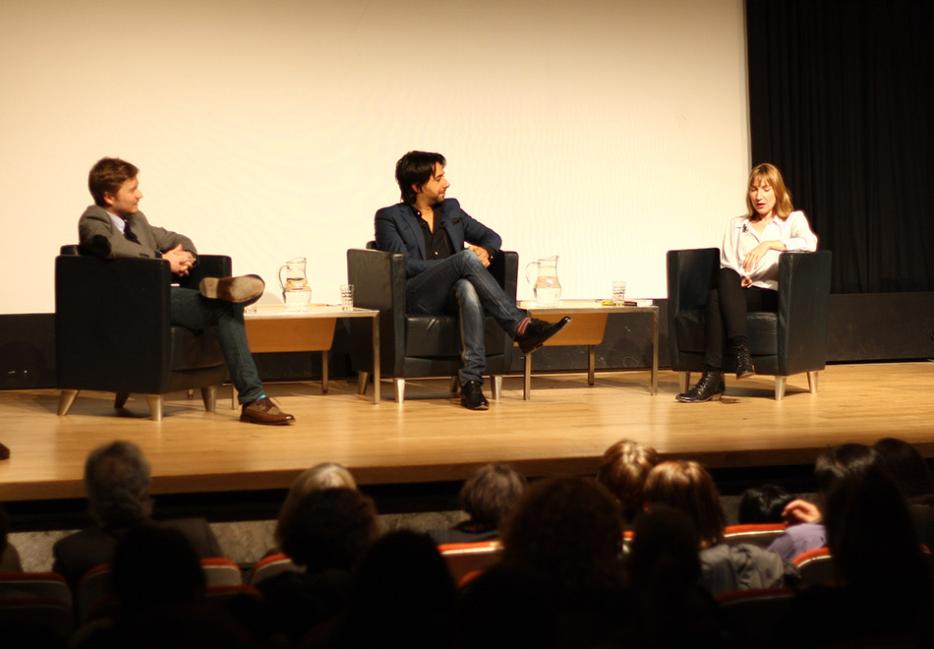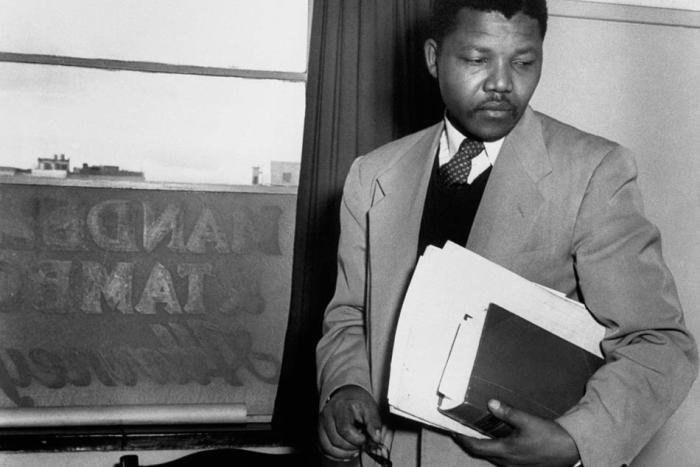The OED word of the year, PEN president Philip Slatton tells us by way of introducing the event, is “selfie.” He adds that the night’s proceedings—a conversation about memoir and literature of the self between Jian Ghomeshi and Sheila Heti, moderated by Mark Medley—might have been different if the word “twerk” had beat out “selfie.” Though the line-up, he joked, would likely have been the same. Medley said that if the audience were well behaved he might twerk before the night was through.
Medley asked Ghomeshi and Heti about writing in a graphomaniac world of status updates and tweets and emails, supplemented by selfies and vines. We’re all writing so much about ourselves, he said, more than ever before. Is a Twitter stream going to replace something more formal? “Is,” he asked, “the memoir doomed?” Heti, whose most recent book How Should a Person Be? is, while not entirely fictional, absolutely a novel and not a memoir, leaned back in her chair. Here was a question for Ghomeshi, whose debut book, 1982, is exactly a memoir of that year in his life. He said that he had a hard time calling it a memoir at first, if because he’d always mixed up the notion of memoir with memoirs—the latter a fuller “womb-to-tomb” autobiographical account of a person’s experience. As the conversation turned toward the differences between fiction and nonfiction, Ghomeshi would say that he wanted people to know that his story was one he’d lived through, that it was real. This became increasingly important as the book revealed more than just his teenaged infatuation with David Bowie, morphing into the story of his coming of age as a confused and resolutely pop-loving Iranian in Canada’s 1980s.
Though he changed the names of the classmates that bullied him, he felt that billing the book as a memoir lent more power to the story of how he dealt with his own complicated feelings about growing up in a racist society. “I’m not going to out someone as a meanie 30 years later,” he said, but it was important that this aspect of his life be documented. Heti mentioned that the difference between writing fiction and memoir was one of motivation: “I’m interested in the self, but I’m not especially interested in myself,” she said. The thing about memoir, she told us, is that people read one and think that the story in it is something that could have happened to them. The same, for whatever reason, is not true of a novel. Unless, of course, you happen to be one the friends-cum-characters in How Should a Person Be?.
Medley went on to ask each writer about what it meant to write about other people in the context of their work. Heti, whose novel famously makes use of actual recorded conversations with her friend, the painter Margaux Williamson, as well as real emails she received and sent, described how important it was to her that her relationships survive the novel. “If I lost the friendships, I would’ve considered the project a failure.” She tells one anecdote about receiving a note from Williamson on the manuscript in progress. In the novel, Sheila crosses a boundary and Margaux eventually forgives her. Williamson was angry that her fictional counterpart was portrayed as a bit of a pushover in this fscene. Heti remembers trying to tell her friend that she wasn’t a pushover, it’s just easier to write a scene where Margaux says “It’s okay” than to get into the complexities of betrayal and forgiveness. Lucky for us readers, Williamson apparently pushed the issue and Heti rewrote the scene to account for the richness Marguax’s conflict in loving a person who has hurt you.
Medley recalls a quote from another writer, who said it was a writer’s job to betray everyone he knows. Heti disagreed, and called that particular conceit boring. “You can think of things as compromises, or you can think of them as constraints,” she said, citing the Ouilipo group and Christian Bök’s Eunoia as examples of the benefits of embracing creative restraints.
Ghomeshi said that he wished he’d had a bit more creative license, that it might have been easier for him to have written his story as a novel. “I’m not saying it would have been good,” he adds. 1982 describes in detail his infatuation with a classmate, a young woman named Wendy who wore her hair in the same style as David Bowie. After the book had already been sold to his publisher, Ghomeshi kept putting off trying to get in touch with the woman, now off somewhere living her life. When he finally made the call to tell her what he was up to, he said he felt like he was in grade nine all over again. Ghomeshi seemed genuinely surprised to find himself telling us about the pit of nerves in his stomach as he dialled her number. The infatuation was still there; he was calling to talk to the woman who was once again the girl who lived so fully in his imagination, first as an object of adolescent obsession, and now as a character in a book still being written. The conversation, he said, was weird and hard.
She sent him an email a few days later, to say that despite their awkward chat—”I used to have an, um, big crush on you. And now I’m writing a book about it”—she’d support him in his decision to tell the story of his own life. There was a fluttering round of applause.
Earlier in the evening, Ghomeshi had made an offhand remark that we live in a celebrity culture, and shortly after the Q and A began I started to formulate a question in relation to his comment. In Heti’s novel, her characters treat each other a bit like celebrities. They photograph and paint and profile each other endlessly, and Sheila in particular longs to have all of the qualities of celebrity, but to the exact scale of her life. Ghomeshi, of course, is celebrated in this country as a journalist, musician, and broadcaster. Heti’s most recent book tipped the scale for her—if she was well known to some dedicated readers before How Should A Person Be?, afterwards she became a literary phenomenon. I tried to formulate a question about how each of them squared their sense of their own celebrity with the way they thought about literature and their selves. But the idea felt too big for the intimate theatre and I couldn’t in the moment figure out how to phrase it without sounding like a jackass. Celebrity is a touchy topic, especially when celebrities are involved in the conversation.
Besides, no matter how I tried I would never best the first question a woman in the front row asked Ghomeshi. “Does Wendy still look like David Bowie?” The answer, delightfully, is yes.





